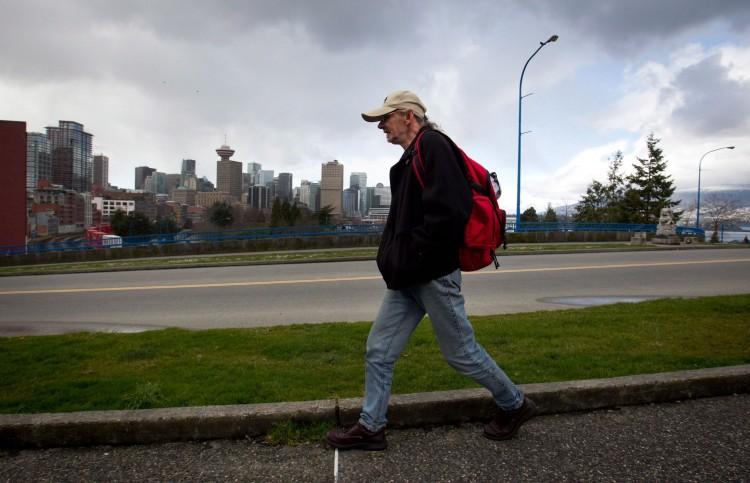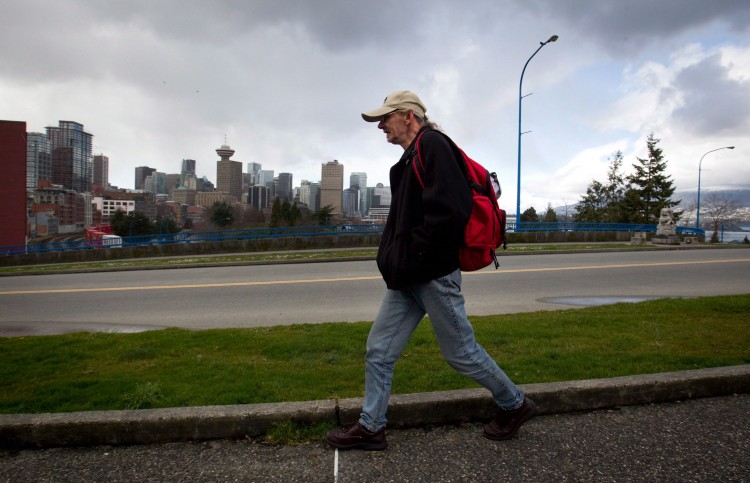An anti-poverty group in B.C.is challenging politicians and residents try to survive on $26 worth of food for a week.
Raise the Rates, a Vancouver-based coalition of community groups and organizations concerned with poverty and homelessness in B.C., has issued its Welfare Food Challenge to raise awareness about what it says are inadequate welfare rates in the province.
A person on welfare is eligible to receive $610 per month in B.C., but Raise the Rates estimates that after paying for accommodation, bus tickets, cellphone (necessary to look for work), and basic hygiene, only $109 remains for food, which would amount to less than $26 for a week.
The challenge starts on Oct. 16 to coincide with World Food Day, and ends Oct. 23.
“The [Food Challenge] experience gives a better understanding, but it can also serve quite importantly to encourage a wider debate and discussion,” says Bill Hopwood, an organizer with Raise the Rates.
“It’s about getting it more discussed, more talked about, more awareness, more compassion, and hopefully that leads the politicians to say, ‘Oh, we’d better do something about that. That’s important.'”
B.C. has the highest overall poverty rate of any province in Canada, with approximately 500,000 poor. In 2011, there were close to 184,000 people in B.C. living on welfare.
During Raise the Rates’ last challenge in January, NDP MLA Jagrup Brar attempted to live on $610 for a month. He lost 26 pounds and reported feeling constantly hungry the entire time.
No MLAs have so far accepted the current challenge, but several others have, including Paul Taylor, executive director of the Downtown Eastside Neighbourhood House; Constance Barnes, a Vancouver Park Board commissioner; and Colleen McGuire, a registered dietician and author of a report called The Cost of Eating in British Columbia.
“With the cost of food today, I can say with confidence that a person cannot achieve a balanced and healthy diet for $26 per week,” said McGuire.
“I am prepared to try firsthand to eat healthy for $26 per week to bring attention to the challenges and barriers faced by people receiving income assistance.”
Positive Public Response
Hopwood maintains the average British Columbian would be shocked to know what living on welfare is really like. He says Brar’s experience helped raise awareness about welfare issues in B.C. and dispelled a lot of myths about welfare recipients.
“When Jagrup Brar did his month on welfare, what was very interesting was the response of the public was overwhelmingly in support of him and overwhelmingly in support of raising welfare,” he says.
“I think partly what happened is it gave the people who believe that welfare should be increased, who believe we should do something about poverty the confidence to speak up.”
In June, B.C. Premier Christy Clark announced a host of changes to the province’s welfare system aimed at helping vulnerable families attain better financial outcomes, assist individuals with disabilities lead more independent lives, and help people capable of work avoid the cycle of income-assistance dependence.
“A good-paying and secure job is one of the most important contributions to a healthy, happy and strong family,” Clark said in a press release at the time.
“These changes strike a balance by providing the supports people need to get back into the workforce, while helping to improve financial outcomes for vulnerable individuals and families.”
The Epoch Times publishes in 35 countries and in 19 languages. Subscribe to our e-newsletter.





